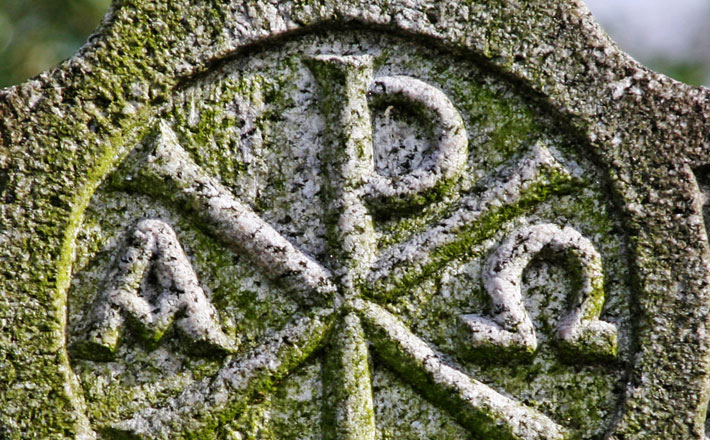Commentary on Psalm 97
Ascension Day falls on a Thursday, but many churches observe it on the Seventh Sunday of Easter.
Feel free to consult Working Preacher for Ascension Day (May 9) as well as for Easter 7 (May 12). With Pentecost just one week away, the Seventh Sunday of Easter gives us a place from which to look back to Easter and ahead to Pentecost. The Easter Gospel is moving out into the wide world. From this vantage point Psalm 97 has much to offer. It reveals the glory of God in a world where many have not heard the Gospel. The Psalm promises light and joy to God’s people.
Like other Psalms in the Easter season the text at hand is an enthronement psalm, not for a human king, but for God who reigns over all. “In what we Christians profess is the ultimate demonstration of God’s sovereignty, Jesus arose. God delivered him from the power of the wicked (Psalm 97:10).”1 From Jesus’ birth, throughout his ministry, his death, resurrection and ascension, “God’s incarnational entry into the process of the world still invites out joyful pursuit of justice and righteousness.” And that changes us. We look for nothing less than “the transformation wrought by God.”2
In its own right, Psalm 97 is a noble text. In the first part, (97:1-5) the glory of God is revealed (theophany). God “is hidden in the mystery of clouds and thick darkness, irresistible fire proceeds him, lightning and thunder manifest his power… the unqualified sovereignty of God.”3 But that sovereignty, as James Luther Mays points out, is not based on brute force. Indeed “the foundation” of God’s throne consists of righteousness and justice. God’s power is not arbitrary, but expresses God’s character of mercy and truth. And God exercises this “rule by intervening in the history of his people.”
The second part of the Psalm (97:6-9) shows how nature and human beings respond to the revealing of God’s glory. Nature’s response is simple and clear: the heavens proclaim God’s righteousness. But among human beings, the response is mixed. The Psalm frankly admits that not all people worship God. And so when God’s glory is revealed, those who worship idols are ashamed — even the idols bow down before the one true God! (97:7). What a contrast with the response of Zion (God’s faithful people); they rejoice in God’s judgments (97:8). Despite this mixed response, section two of the Psalm reaffirms that God is exalted over the earth and “far above all gods” (97:9).
The third part of the Psalm (97:10-12) sounds like wisdom from Proverbs. It speaks to the question, “How do God’s people live in a world where not everyone recognizes God’s rule?” Verse 10 reassures “those who hate evil” that God has their back: God loves, guards, and rescues them. “The hand of the wicked” will not prevail (97:10). Then comes a promise: “Light dawns for the righteous, and joy for the upright in heart” (97:11).
Yes, there is evil in the world and yes, there is conflict and pain. But God’s love and faithfulness surround us. Therefore, we can “rejoice in the Lord… and give thanks to his holy name.” And so, writes James Luther Mays, “The real message of the psalm” comes in its third part. The Psalm proclaims “God’s reign [which] offers the righteous hope in their opposition to evil. When the kingdom of God is proclaimed, the righteous takes courage.”4
Two themes pervade Psalm 97; first, the theme of rejoicing. There is joy for the earth, for God’s own people and for all the righteous (97:1, 8, 11-12). The second theme is that of righteousness (God’s righteousness in 97:2, 6, and human righteousness in 97:11-12). As the New Interpreter’s Bible puts it, “those who submit themselves to God’s rule will derive their character from God’s character. Because God rules, there is the possibility that people can be righteous too.”5
In the context of the lectionary texts for Easter 7, Psalm 97 is a team player. For example, in Acts 16:16-18, Paul casts out a “spirit of divination” from a slave girl (similar to Psalm 97:7 in which all gods bow down before the one true God). In the Acts 16 story, owners of the slave are angry that Paul has cast out the spirit of divination, from which they were making money. So Paul and Silas are beaten and jailed (Acts 16:22-24).
But not for long, for earthquake shakes the foundations of the prison and breaks their chains open (16:26). This reminds one of the trembling of the earth in Psalm 97:4. In Paul and Silas’ story “light dawns for the righteous” (Psalm 97:11). This theme of light dawning is found also in Revelation 22:16, where Jesus says, “I am… the bright and morning star.” And in John 17:24, Jesus prays that we may see his glory. Psalm 97 proclaims God’s glory to the earth and all its people.
Psalm lends itself very well to a three-step sermon.
- Step 1: God shows up (the glory of nature, the mystery of incarnation, the suffering of the cross, the wonder of resurrection and the glory of ascension).
- Step 2: we respond (faith and unbelief, or a mix). Here one could speak directly to experiences of the congregation or community.
- Step 3: God is with us, loving, guarding, rescuing. The sermon starts on a high note, goes down into the valley, and then comes back up again with the promise that “Light dawns for the righteous.” But God is with us, loving, guiding, rescuing us, giving us light and hope.
Hymns:
“Joyful, Joyful We Adore Thee” (ELW 836)
“Immortal, invisible, God only wise.” (ELW 834)
“Jesus shall reign” “Alleluia! Sing to Jesus” (ELW 392)
1New Interpreter’s Bible, vol. 4 (Nashville: Abingdon Press, 1996), 1068.
2Ibid., 1070.
3James Luther Mays, Psalms (Louisville: Westminster John Knox, 1994), 311.
4Ibid., 312.
5New Interpreter’s Bible, 1068.


May 12, 2013